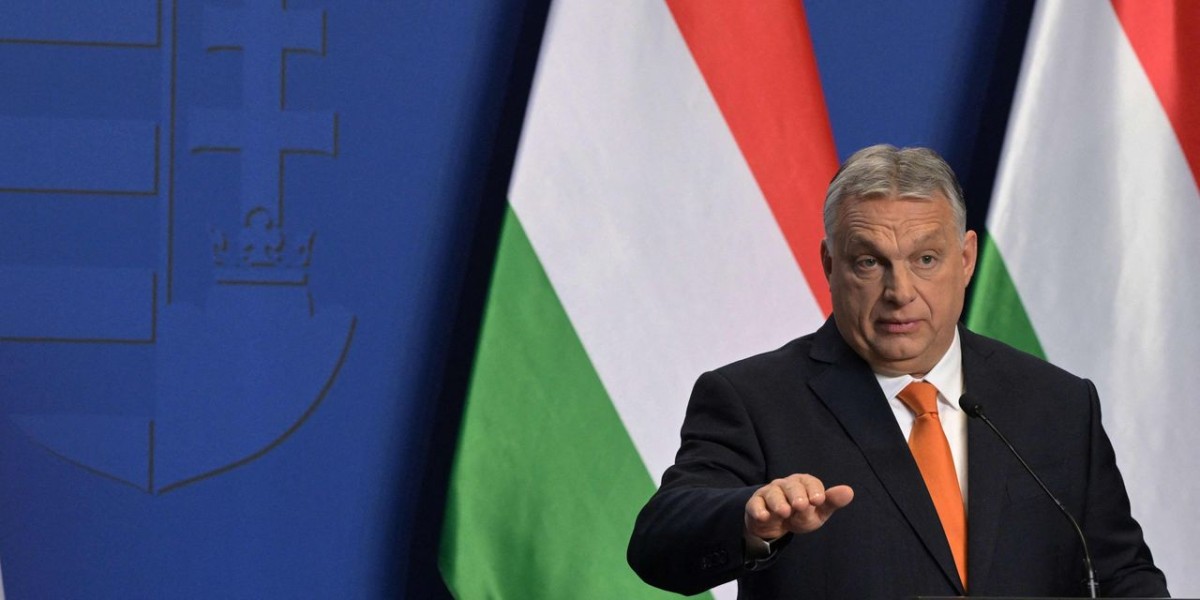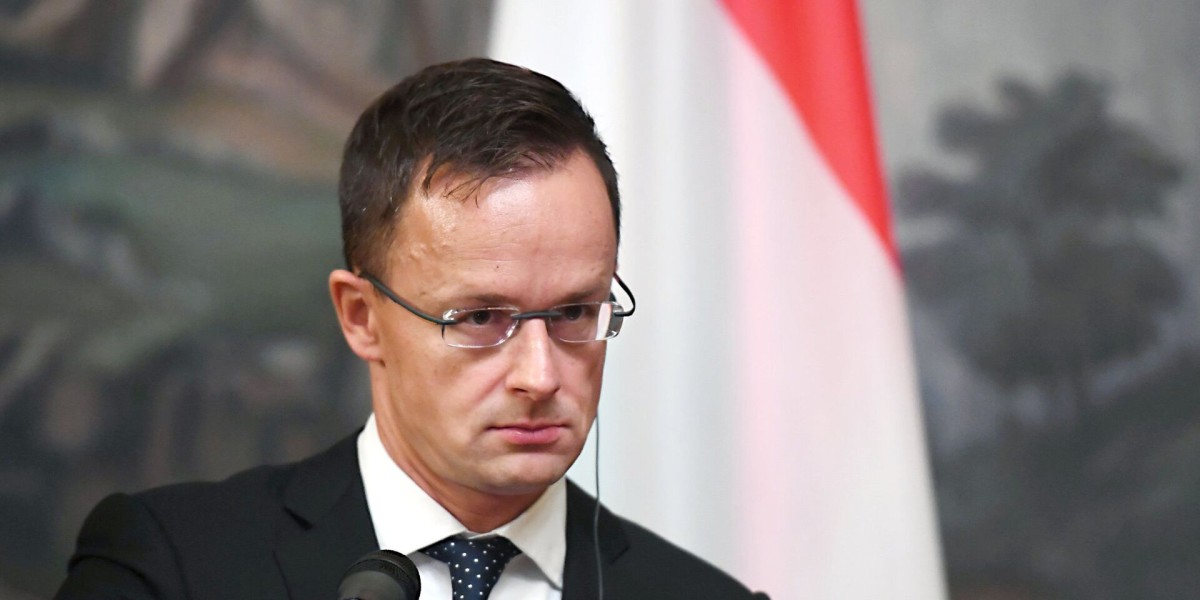 Hungary will veto any EU sanctions imposed on Russian nuclear energy organisations and enterprises, Hungarian Prime Minister Viktor Orban told the morning programme one Kossuth radio.
Hungary will veto any EU sanctions imposed on Russian nuclear energy organisations and enterprises, Hungarian Prime Minister Viktor Orban told the morning programme one Kossuth radio.
"Plans for new sanctions are being developed in Brussels, nuclear energy is on the agenda," he said, referring to preparation by the European Commission for a tenth sanctions package against Russia.
Orban stressed that he "expects a big fight on this issue, but the Hungarian government will veto" if the EU tries to impose restrictions on Russian nuclear power.
Orban confirmed that his government still favours reviewing the EU sanctions policy based on public opinion, as expressed during national consultations in October-December 2022. Polls at that time, in which 1.4 million people took part, showed that 97% of respondents were against the sanctions. "National consultations have clearly shown that the Hungarians do not want sanctions, because they will not help Ukraine, they will not bring Russia to its knees and will only cause terrible damage to Europe and Hungary," Orban stressed. He believes the results of the national consultations will be a significant help in his discussions with the leadership of the EU and other countries.
"Hungary's security comes first for us, and therefore Hungary is not at war with anyone," he said.
Russia's nuclear sector has so far avoided EU sanctions because Rosatom still supplies fuel to reactors in several member countries, including Finland and Bulgaria. Hungary's Paks NPP comprising four Soviet-built VVER-440 reactors supplies some 40% of Hungary's electricity. These reactors use fuel supplied by Rosatom’s TVEL and Rosatom is also constructing two new VVER-1200 reactors at Paks (Paks-II).
Hungary’s Minister of Foreign Affairs & Trade, Péter Szijjártó, in a recent telephone call with Russian Deputy Prime Minister for energy Alexander Novak, said they had agreed to accelerate work at the Paks expansion project. "We agreed that nuclear energy is the energy of the future, and the good news for us is that the Russian government also attaches great importance to the development of the Paks project. We agreed to accelerate investment wherever possible," Szijjártó said on his Facebook page.
“As a result of the current energy crisis, it has become clear that only those countries that can themselves produce most of the energy they need are safe,” he noted. “Therefore, the rapid construction of new nuclear power plants is of decisive importance for our country. For this reason, we, Of course, we will not support any proposal from Brussels that would make Hungarian-Russian cooperation in the nuclear field even a little more difficult or impossible."
Hungary already enjoys an exemption from the partial EU embargo on Russian oil and rejects calls for other sanctions on Russia’s energy industry, even indirect ones on areas such as construction, engineering or IT. Szijjártó also tol d a press conference that Hungary was outraged by German opposition to Paks-II noting that "the European Commission is currently not hindering investments" in international projects in this area.
d a press conference that Hungary was outraged by German opposition to Paks-II noting that "the European Commission is currently not hindering investments" in international projects in this area.
In this regard, the attempts of the Vice-Chancellor of the Federal Republic of Germany, Minister for Economic Affairs and Climate Protection Robert Habek, as well as German Foreign Minister Annalena Burbock from the Green Party to interfere with this project are perplexing, Szijjarto said. He explained that in France the authorities have given permission for their company to participate in Paks-II, nut the two ministers in the German government are still blocking the issuance of a licence to a German company. "This is outrageous and unacceptable," he added.
In October 2021, Rusatom – Automated Control Systems JSC (a subsidiary of Rosatom) and the Franco-German consortium Framatome SAS – Siemens AG signed an agreement in Moscow on the manufacture and commissioning of automated process control systems for two units at the Paks NPP. Earlier, within the framework of this project, a contract was signed for the manufacture of turbines by GE Hungary Kft, which is a Hungarian subsidiary of US General Electric. The exemption of nuclear energy from EU sanctions is, therefore, of particular importance for the Paks-II project.
Image (top left): Hungary's Prime Minister, Viktor Orban
Image (bottom right): Hungary’s Minister of Foreign Affairs & Trade, Péter Szijjártó






